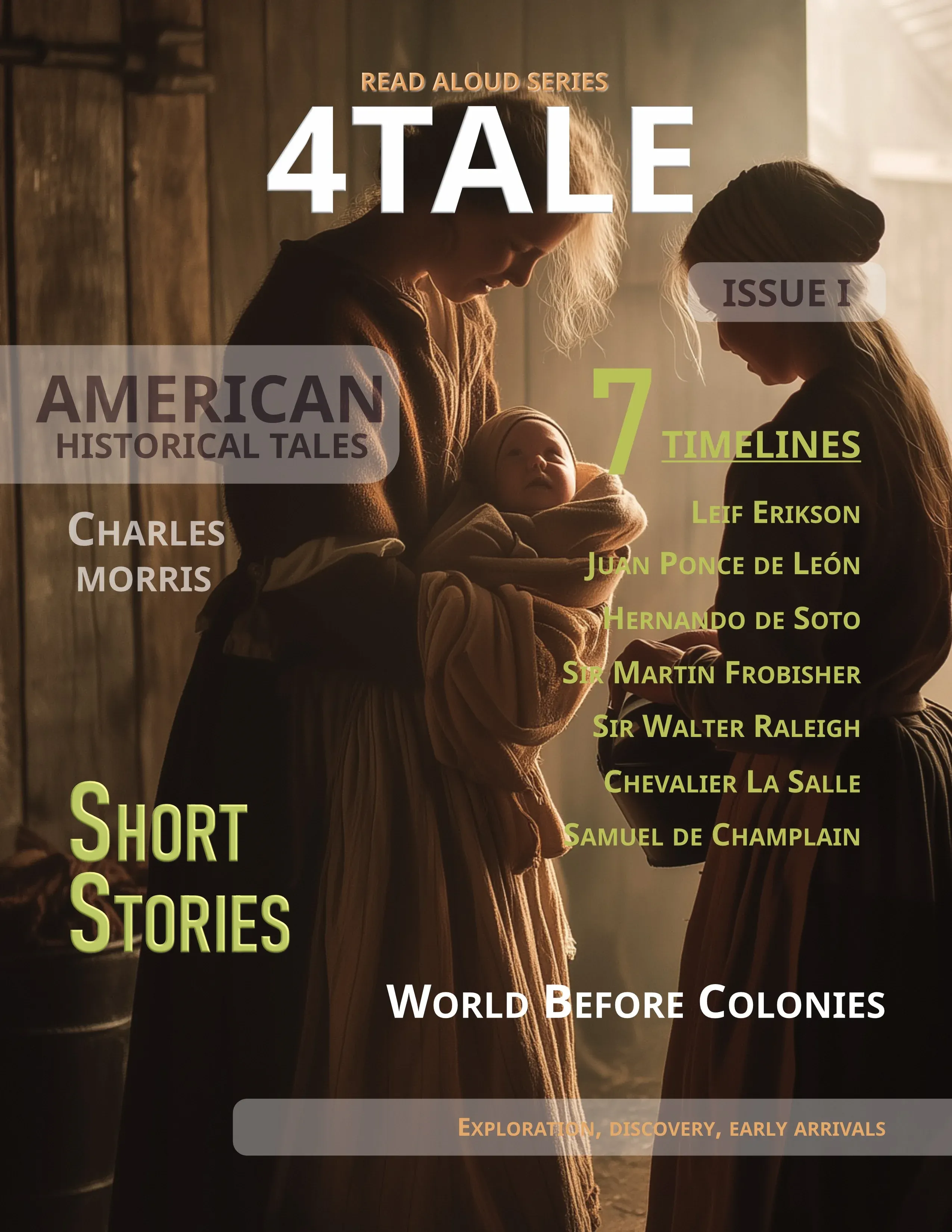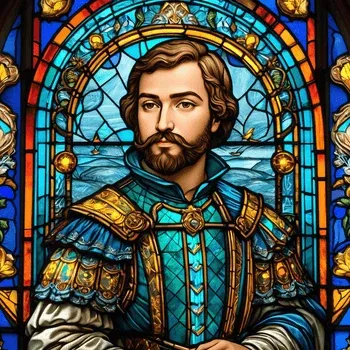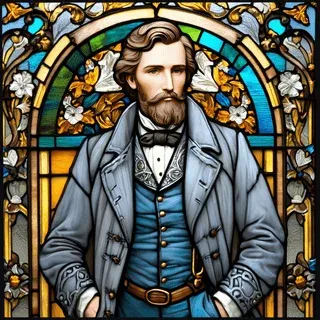BY CHARLES MORRIS
The Lost Colony of Roanoke
Historical Tales 2 American: Story 3 of 34

Heading

Ralph Lane's Governorship: Ralph Lane was appointed as the governor of the first colony, arriving with 150 colonists in 1585. However, the colony struggled due to a focus on searching for gold rather than building sustainable settlements.
Deserted Colony: When John White, the governor of the second colony, returned in 1590 after a delay caused by the Spanish Armada, he found the settlement deserted with no sign of the colonists except for the word "Croatan" carved into a tree.
A good book we like, we explorers. That is our best amusement, and our best time killer
- Roald Amundsen, Explorer
Sir Walter Raleigh's Failed Attempts at Colonizing America: 16th Century Expeditions
Delve into the fascinating, yet untold narrative of Sir Walter Raleigh's ill-fated endeavors to establish English colonies in America during the late 16th century. Discover the struggles, conflicts, and mysteries that marked these initial expeditions, the early settlers' misplaced priorities, and the eerie disappearance of the second group, leaving behind only an enigmatic clue. As we explore these riveting tales of adventure, we'll also encounter the birth of the first English child in America, Virginia Dare. Read on to uncover the hidden truths of these early attempts at colonization that have reshaped our understanding of history.
The Emergence of English Expeditions in the New World
The late 16th century marked the advent of English expeditions to the New World, driven by the ambition of establishing colonies in uncharted lands. Spearheading these ambitious endeavors was none other than Sir Walter Raleigh, an English adventurer and writer renowned for his courage and leadership. The allure of America's untapped resources and the promise of land spurred England to explore these foreign territories, thus marking the dawn of English colonization efforts in the Americas.
The First Attempt: The Search for Gold in 1584
The first expedition, undertaken in 1584, was wrought with challenges and ultimately ended in failure. The settlers, lured by the promise of abundant gold reserves, neglected the imperative task of cultivating the land in favor of seeking wealth. Their fixation on gold, coupled with escalating conflicts with the local Native American tribes, spelled doom for the first English settlement in America. Their dreams of prosperity were dashed, highlighting the ill-preparedness and misguided priorities of the settlers.
Podcast
Consequences of the Initial Failure and the Role of Sir Francis Drake
Following the failure of the first expedition, the settlers found themselves in dire straits. Rescue came in the form of Sir Francis Drake, an English sea captain and privateer, who salvaged the situation by bringing the surviving settlers back to England. This catastrophic failure served as a sobering lesson for the English, emphasizing the importance of preparation and the necessity of establishing harmonious relationships with the local inhabitants. Despite the initial setback, the dream of establishing English colonies in America lived on, setting the stage for subsequent attempts.
The Second Attempt: Farmers in 1587 and the Tragic Discovery
The second attempt by the English to establish a colony in America occurred in 1587. This time, they took a different approach. Instead of gold-seekers, the group was composed of farmers. Their goal was not to find gold but to establish a sustainable colony. Unfortunately, the reality they faced upon their arrival was far from welcoming. The settlers discovered the remains of the fifteen men who were left behind during the first expedition. This shocking discovery was a grim reminder of the challenges that lay ahead in the New World.

The Mysterious Disappearance of the Second Expedition and the Enigma of "Croatan"
Despite the tragic discovery, the second group of settlers decided to stay. They built homes, tilled the land, and tried to eke out a living in this foreign land. However, after a few years, they too disappeared without a trace. The only clue left behind was the word "Croatan" carved into a tree. Numerous attempts were made by Sir Walter Raleigh to locate them, but all proved futile. Their fate has since remained a mystery. Some theories suggest that they might have joined a friendly Indian tribe, but there is no solid evidence to support this claim. The enigma of "Croatan" continues to be a subject of fascination and speculation.
Virginia Dare: The First English Child Born in America and Her Significance
Among those who disappeared in the second expedition was Virginia Dare – the first English child born in America. Her birth was a beacon of hope amidst the trials faced by the settlers. It marked a significant milestone in the history of English colonization. However, the disappearance of Virginia Dare and the entire second expedition adds a layer of poignancy to her story. Her birth, life, and mysterious disappearance underscore the perils and uncertainties that marked the early years of English attempts to colonize America. Despite the tragic circumstances, the story of Virginia Dare remains a symbol of the resilience and determination of those early English settlers.
Conclusion
Sir Walter Raleigh's ambitious attempts to colonize America were marred by misplaced priorities and tragic disappearances. The lure of gold overshadowed the necessity of sustainable farming, leading to the failure of the first settlers. The second expedition, despite its initial promise, met an enigmatic end, with the haunting word "Croatan" as the only clue. Amidst these trials, the birth of Virginia Dare symbolized a glimmer of hope, marking the advent of the first English child in America. These poignant tales of early colonization attempts continue to intrigue and shape our understanding of history.





